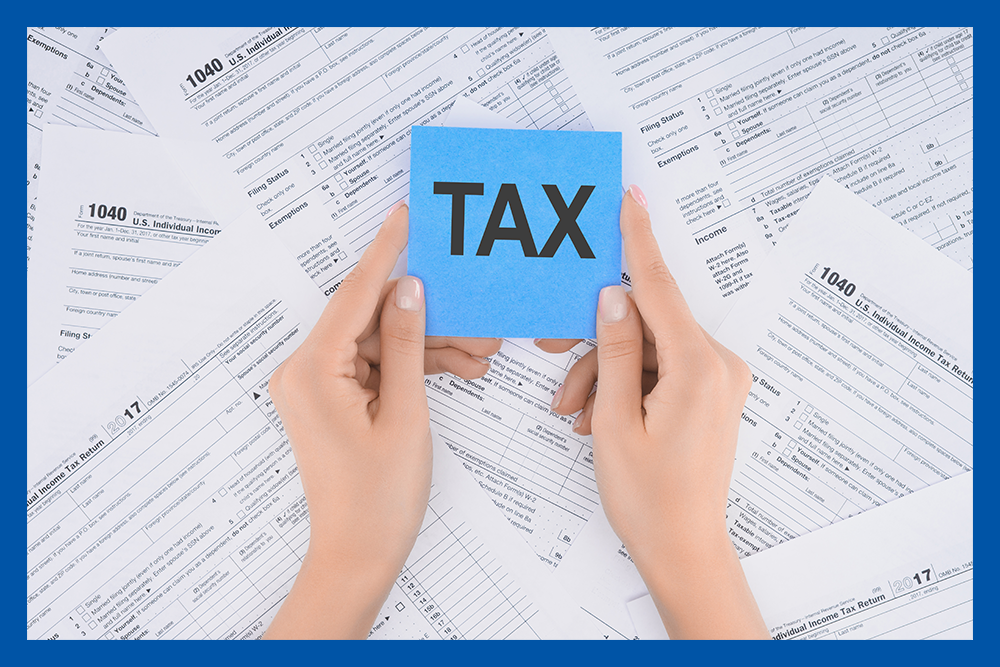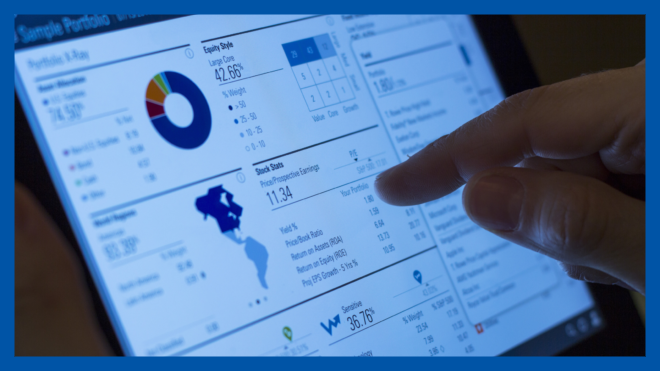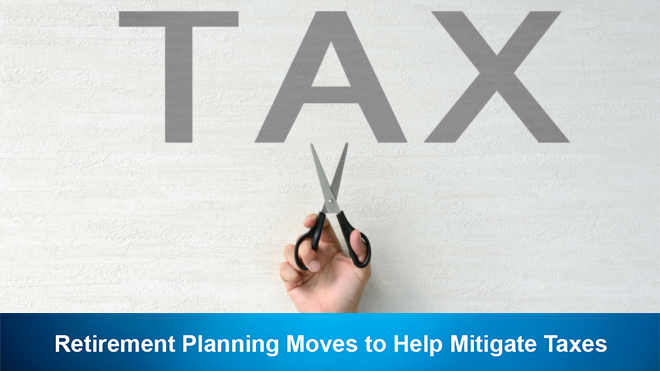Spoiler Alert: Taxes don’t stop when you retire! Try these strategies to minimize taxes on the money you will use for retirement.
Despite paying taxes your whole working life, unfortunately it doesn’t stop when you hit retirement. However, there are moves you can make now to significantly reduce your tax bill in retirement.
You might think you know how much you have saved for retirement and whether you’ll get money from Social Security or a pension. However, do you know how that money will be taxed?
Once you retire, you may be subject to income taxes on your retirement account withdrawals. In addition, around 50% of seniors find themselves paying taxes on their Social Security benefits as well, according to a survey from the Senior Citizens League.
The sources of your retirement income and how much retirement income you draw each year will determine your taxes in retirement. And your taxes determine how much money you really have to live on. For most people, minimizing taxes in retirement does not have to be complicated. Follow these steps to help keep your tax bill low.

Before you can make plans for minimizing your tax burden, you first need to know what tax bracket you are in, and where the cutoff points are for tax brackets using your filing status.
Staying in a low tax bracket can help retirees minimize the tax they pay on their withdrawals. When your income reaches specified thresholds, you pay gradually higher amounts of tax on the additional income. If your withdrawal plan puts you into a higher tax bracket by a hair, you might want to lower the amount you plan to pull out.


One of the best strategies for saving taxes on retirement income is to live in or move to a tax-friendly state. In the wake of the Tax Cuts and Jobs Act, this will be especially important through 2025 when only a total of $10,000 in local property, state and local income, or sales taxes will be deductible for federal income tax purposes.


Having a variety of accounts that are taxed differently can provide flexibility when it comes to taking withdrawals in retirement. Your retirement savings may include a pension, IRAs, a 401(k) account, and stocks, bonds and mutual funds not held in tax-deferred accounts. Consider drawing from different buckets.

Roth IRAs allow savers to set themselves up with tax-free retirement income. As defined by RothIRA.com, a ROTH IRA is, “a special retirement account that you fund with post-tax income (you can’t deduct your contributions on your income taxes). Once you have done this, all future withdrawals that follow Roth IRA regulations are tax free.”
This incredible tax savings makes this type of financial investment very attractive to investors, especially those looking to plan for their retirement.
The simplest way to immediately begin making tax free withdrawals from a ROTH IRA account is to convert the account from a traditional IRA. Many of the intricacies of this process can be fully explained by reading through our recent article, “What You Need to Know About IRA Conversions”.
Roth IRAs don’t give you a tax break in the year you make the contribution. Instead, Roth IRA deposits are made with after-tax dollars.
If you haven’t already funded your retirement account for 2022, do so by April 15, 2023. That’s the deadline for contributions to a traditional IRA, deductible or not, and to a Roth IRA. To start tax-free compounding as quickly as possible, however, don’t dawdle in making contributions.
For 2022, the maximum IRA contribution you can make is $6,500 ($7,500 if you’re age 50 or older).


Not all income is taxed the same. Some types of income have definite tax advantages. Examples include (as per TaxAct.com):
- Capital gains. If you buy investment property, gold or other capital assets and hold them for more than one year, you pay a much lower tax rate on the gain than you would pay on ordinary income. If you’re in the 25 percent tax bracket, the capital gains tax rate is only 15 percent. If you’re in the 15 percent tax bracket, the capital gains rate is 0 percent.
- Gain on the sale of your home. If you sell your home that you have lived in and owned for at least two of the last five years, you may qualify to exclude up to $250,000 of the gain from your income ($500,000 if filing jointly). You can do it again after another two years, if you choose. This may be the best tax-free income, ever.
- Rental real estate investments. If you invest in rental real estate, the net income from the rental is taxable as ordinary income. However, by the time you deduct expenses, including depreciation, you may have little or no rental income to pay tax on. You may even have a tax loss to help offset ordinary income (up to annual limits). That makes real estate rentals a tax-preferred income source for many people.
Plan to sell assets and take retirement plan withdrawals so your income remains somewhat steady from year to year. For example, if you sell capital assets at a loss, consider selling other capital assets that have gone up in value the same year. The losses will help offset your capital gains.


SMART is the Strategic Movement Around Retirement Taxation and its goal is to limit your post-retirement taxation – not your income.
- How to use tax arbitrage to dramatically increase your retirement income without risk.
- Ways to reduce the amount of money you give to the IRS during retirement.
- Why rate of return is Wall Street’s half-truth and how they use misleading math to sell you.
This highly advanced cutting edge strategy is specifically designed to increase retirement income while simultaneously increasing the amount of liquid income tax free cash flow.
The goal of SMART is to limit your post retirement taxation – not your income. For over a century, wealthy Americans have understood and taken advantage of this unique and powerful planning opportunity.
Are you ready to get SMART about your retirement? Request your FREE COPY of the book right now from the retirement income experts at CKS Summit Group.

It’s important to have a plan in place before you retire. But even if you’re close to retirement, it’s not too late to take advantage of the benefits of tax planning.
Remember, unexpected circumstances can arise and tax laws are constantly changing. Meet with your advisors at CKS Summit Group on a regular basis to make sure you remain on track.
Ready to get started? Set up your complimentary strategy session here today.



